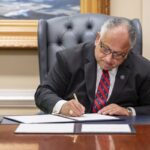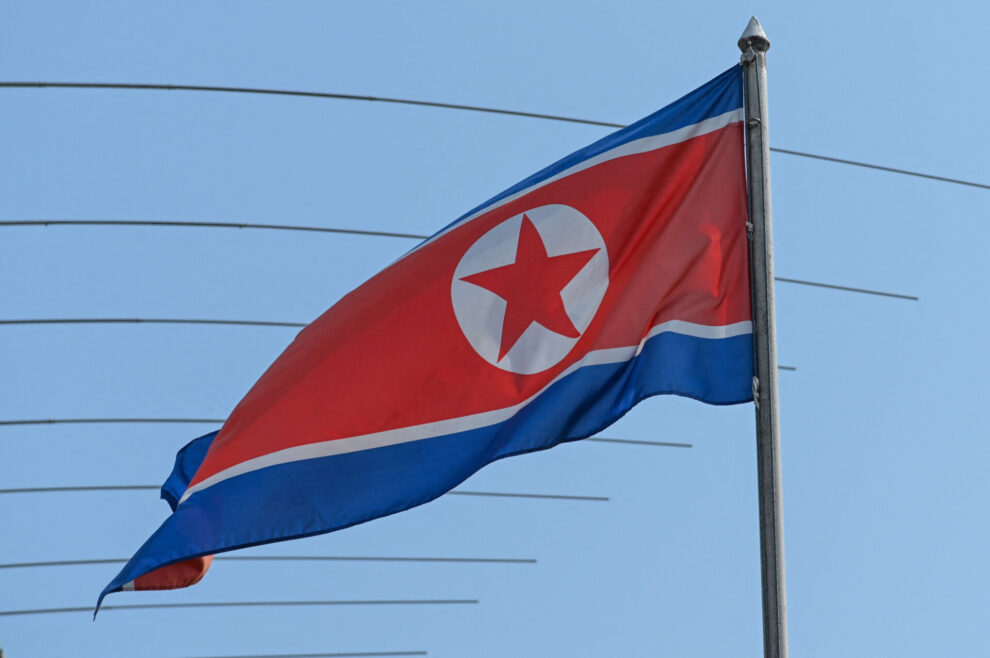While Kim Jong-un basks in the afterglow of his recent visit to Russia, North Korea is scaling back its presence overseas, with reported plans to close almost a quarter of its diplomatic missions blamed on its sanctions-hit economy.
While the regime moves closer to China and Russia amid new tensions on the Korean peninsula, years of UN-led sanctions have forced it to close embassies and consulates in as many as a dozen locations, including those in countries Pyongyang views as longtime allies.
Media reported that North Korean ambassadors in Uganda and Angola had announced the closure of their embassies in “farewell” visits to the countries’ leaders. The North has also shuttered its consulate in Hong Kong and embassy in Madrid, while a similar fate could await missions in about eight other locations, according to the Yomiuri Shimbun, a Japanese newspaper.
While North Korea has made dramatic progress in its nuclear and ballistic missile programmes, sanctions are making it harder to acquire foreign currency, some of which is used to fund its overseas presence. Its diplomatic missions do not receive money directly from Pyongyang, but instead sustain their presence from construction and IT, as well as illegal trade, smuggling and money laundering.
South Korea’s unification ministry, which oversees inter-Korean ties, said tighter sanctions had hobbled the North’s money-making schemes. “This is a glimpse of North Korea’s dire economic situation, where it is difficult to maintain even minimal diplomatic relations with traditional allies,” the ministry said.
North Korea sealed its border with China at the start of the coronavirus pandemic, effectively shutting itself off from its biggest trading partner, while the UN continued to punish the regime over its development of weapons of mass destruction.
North Korea, however, has claimed it is exercising the right of any “sovereign country” to reassess its diplomatic priorities. The closures were “part of the regular affairs … to promote their national interests in external relations”, an unnamed official said on the North Korean foreign ministry website.
“In line with the changes in the international environment and the state external policy, we are either closing or newly opening diplomatic missions in other countries. “We have also introduced such measures on several occasions in the past.”
But Cho Han-bum, a senior research fellow at the Korea Institute for National Unification, said the embassy closures were evidence that the North Korean economy was in crisis, with increases in its trade deficit and lower foreign currency reserves.
“Cyber hacking is not enough to run their economy,” Cho said. “It seems economic hardship and depletion of foreign currency are the biggest reasons for the closure of embassies abroad.
“North Korea will bolster its so-called new cold war diplomacy by maintaining or strengthening its bases with important countries like China, Russia, Syria, Iran, and Cuba while clearing out those that are difficult and burdensome to maintain.”
Despite years of isolation, North Korea has diplomatic ties with about 159 countries, and a presence in about 50 – many in former eastern bloc countries and non-aligned states. It runs its UK embassy out of a semi-detached house in Ealing, west London. That is not thought to be on the list of proposed closures.
The North’s embassies have occasionally been at the centre of episodes that have embarrassed the regime.
In 2016, the then deputy ambassador to Britain, Thae Yong-ho, defected to the South, declaring himself “sick and tired” of Kim’s regime. He went on to be elected to the South Korean national assembly as a member of the ruling People Power party.
“This is the first time that such a large number of embassies have been withdrawn since the Arduous March in the 1990s,” Thae said recently, referring to a devastating famine that killed hundreds of thousands – perhaps millions.
Thae said the closures “show that UN sanctions against North Korea are working well around the world”.
Many will have been surprised by the decision to close the embassy in Luanda. North Korea and Angola established diplomatic ties in 1975 and Angola’s former president José Eduardo dos Santos has made three visits to Pyongyang. North Korean workers have been sent to Angola to earn desperately needed dollars for the regime.
Sanctions, however, have frustrated economic ties between the North and its traditional allies. According to Yonhap, Angola terminated its contracts with Mansudae Angola, a North Korean construction firm, in 2017 and asked its workers to leave the country as required by UN sanctions.
The closures also highlight a shift in Pyongyang’s diplomatic strategy that has seen it move closer to Russia and China in response to the arrival of a hardline administration in Seoul and the failure of Donald Trump’s “nuclear diplomacy”.
During their recent summit, Kim and Vladimir Putin are thought to have agreed a deal in which the North will supply the Kremlin with ammunition for its war in Ukraine, possibly in return for Russian help with Pyongyang’s space programme.
“Because of the war in Ukraine, North Korea believes that it can survive by sending a lot of manpower to Russia and China and intensively strengthening military and economic cooperation with these two countries,” Thae said. “It shows that the strategic position of Africa has weakened while the strategic importance of China and Russia has grown in North Korea’s overall diplomatic strategy.”
But the embassy closures could have serious repercussions for North Korea’s economy, according to Chad O’Carroll, founder of the NK News website.
The closures amount what could be “one of the country’s biggest policy shake-ups in decades”, O’Carroll said, with implications for diplomatic engagement, humanitarian work in the isolated country, as well as the ability to generate illicit revenue.
Source : TheGuardian
















